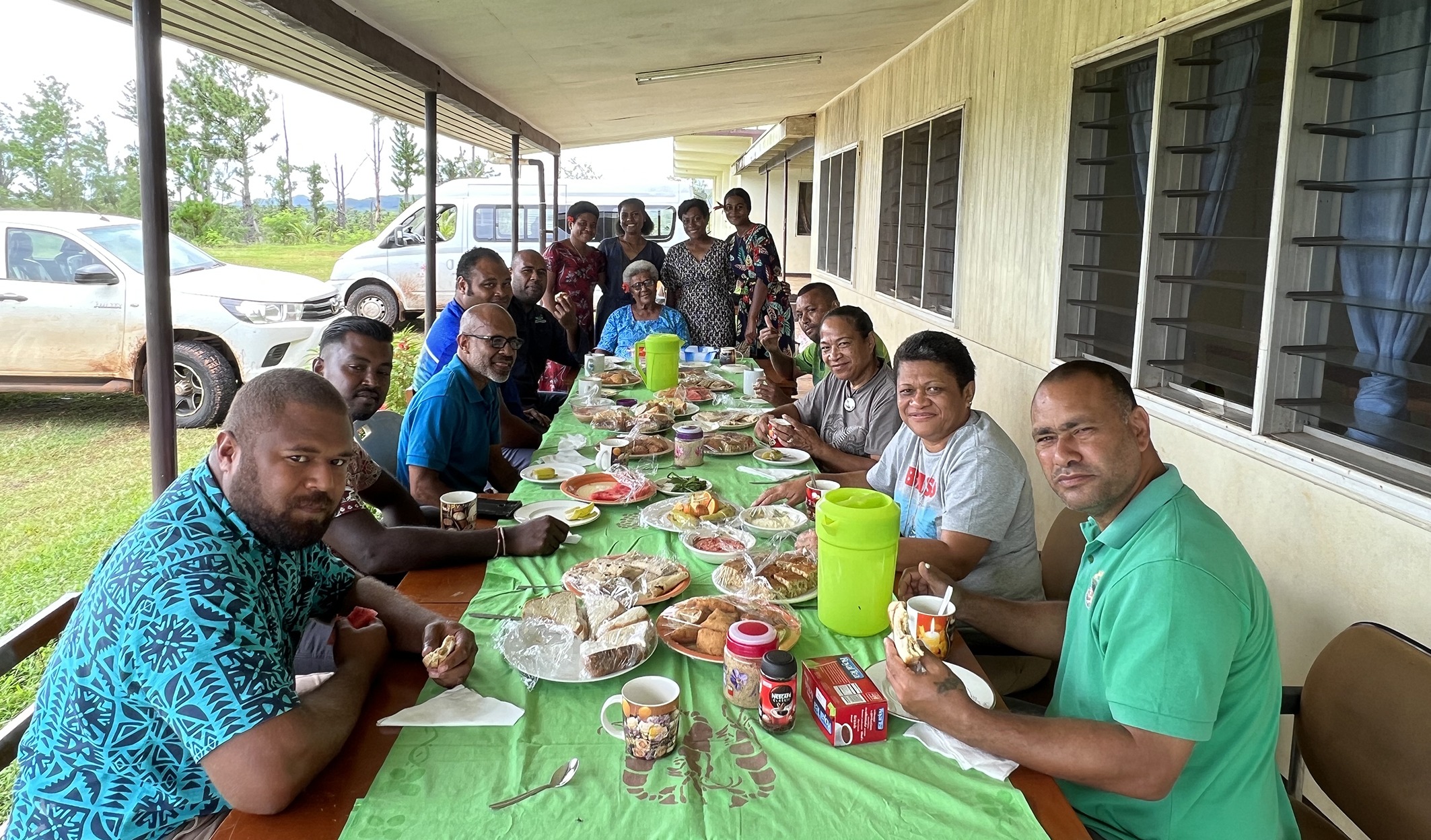

Announcing the 2024 Crawford-in-Queensland International Engagement Award winners
May 30, 2024

The Crawford Fund QLD Committee supports targeted training and mentoring of overseas scientists and extension officers by experienced Queensland counterparts working on similar agricultural research challenges.
This year, they will be giving four International Engagement Awards to researchers at the Forest Products Innovation, Agri-Science Queensland, Department of Agriculture and Fisheries; Centre for Crop Health, University of Southern Queensland; the Centre for Crop Science, Queensland Alliance for Agriculture and Food Innovation at the University of Queensland, and the Horticulture & Forestry Science, Agri-Science Queensland, Department of Agriculture and Fisheries.
“The diverse projects will see collaboration with researchers at the Fijian Ministry of Forestry; plant pathologists from the National Agricultural Research Institute in Papua New Guinea; mungbean breeders from seven countries who are collaborating with the International Mungbean Improvement Network funded by ACIAR through the World Vegetable Center (WorldVeg), and mango breeding researchers from the University of the Philippines Los Banos,” said Professor Bob Lawn, honorary coordinator of the Crawford Fund Queensland Committee.
“Supporting Queensland scientists to work with scientists from our region not only promotes technology exchange and collaborative research, it is a win-win approach that also strengthens Queensland expertise,” said Professor Lawn.
“We are very pleased to have three of the four awards involve early career researchers ready to share their expertise and broaden their networks by delivering training and mentoring opportunities.”
“Congratulations to the successful applicants receiving these highly competitive awards,” he said.
We are pleased to announce the four 2024 winners for our training and mentoring awards, they are:
Dr Robbie McGavin, Research Facility and Project Manager, from Forest Products Innovation, Agri-Science Queensland, Department of Agriculture and Fisheries will lead a project titled Manufacturing veneer-based engineered wood products with efficiency and precision to maximise resource recovery and utilisation value in collaboration with the Fijian Ministry of Forestry.
The five training program participants will acquire advanced knowledge and practical skills in log peeling, veneer manufacturing, and testing, significantly enhancing their ability to effectively contribute to the ongoing ACIAR project FST/2019/128- “Coconut and Other Non-Traditional Forest Resources for the Manufacture of Engineered Wood Products”.
This research will deliver and validate wood processing technologies to transform coconut and other currently low-value forest resources into high-value engineered wood projects, suitable for local and international markets.
By providing new, profitable outlets for low-value log projects, the returns from these materials can increase the income of farmers, timber growers, and processors, contribute to the renewal of the coconut estate, and expand employment and trade.
Dr Buddhika Dahanayaka, Research Fellow at the Centre for Crop Health at the University of Southern Queensland will lead training in Upskilling the next generation of plant pathologists from Papua New Guinea (PNG).
Effective management of crop diseases requires expert knowledge and accurate identification of the causal pathogen to develop targeted management strategies and prevent the spread and impact of disease. In PNG, the decreasing number of senior pathologists due to retirement has become a major concern. There is a need to train young plant pathologists to address pressing biosecurity issues, especially in the agricultural sector.
This project aims to contribute to the management of crop diseases in PNG by upskilling a young female scientist in-country in areas of isolation and identification of fungal and bacterial pathogens from diseased plants from a range of crops.
By providing well-structured training and mentorship, we can empower the upcoming generation of plant pathologists in PNG.
Dr Millicent Smith, Senior Lecturer in Crop Physiology from the Centre for Crop Science, Queensland Alliance for Agriculture and Food Innovation, University of Queensland has received funding for her Capacity building for mungbean breeders initiative, part of the International Mungbean Improvement Network (IMIN), led by WorldVeg and supported by ACIAR. The network brings together plant breeders and researchers focused on improving mungbean in Asia, Africa, and the Pacific.
Five early career researchers, including two past Crawford-in-Qld Student Awardees – Dr Tom Noble (2018) and Shanice Van Haeften (2023) – will travel to the International Crop Research Institute for the Semi-Arid Tropics (ICRISAT) in India as part of this initiative to undertake a two-day training workshop for IMIN project participants and other interested scientists at ICRISAT.
Participants will acquire the fundamental knowledge and skills required to develop resilient mungbean varieties for a changing climate. The knowledge and skills gained in the workshop will be relevant to other crops of interest to participants such as pigeonpea and chickpea.
Dr Asjad Ali, a Senior Plant Breeder from the Horticulture & Forestry Science, Agri-Science Queensland, Queensland Department of Agriculture and Fisheries (QDAF), based in Mareeba has received funding to lead training of a project titled, Capacity-building of researchers from the Philippines for efficient mango breeding and post-harvest fruit evaluations.
Mango is one of the most economically important tropical fruits in the world, and it is widely cultivated and consumed in the Philippines. However, despite its significance, the mango breeding program in the Philippines face challenges due to limited resources, expertise, access to advanced technologies and poor performance of old cultivars. To address these constraints and enhance the mango breeding efforts in the Philippines, this project will train the researchers who will be collaborating in a joint ACIAR-SRA project titled ‘Philippines Mango Breeding and Genomics Benchmarking Review – Short Research Activity.’
The scope of this training project was identified in discussions between researchers from the University of the Philippines Los Banos (UPLB) and QDAF researchers. The key objective of this project is to build capacity of Philippine researchers with advanced approaches in mango breeding to develop varieties for the local market and benefit the Philippines mango industry. Furthermore, collaborative mango breeding research could provide access to unique mango germplasm for future climate resilient varieties to benefit the Australian mango industry in the future.




 0
0